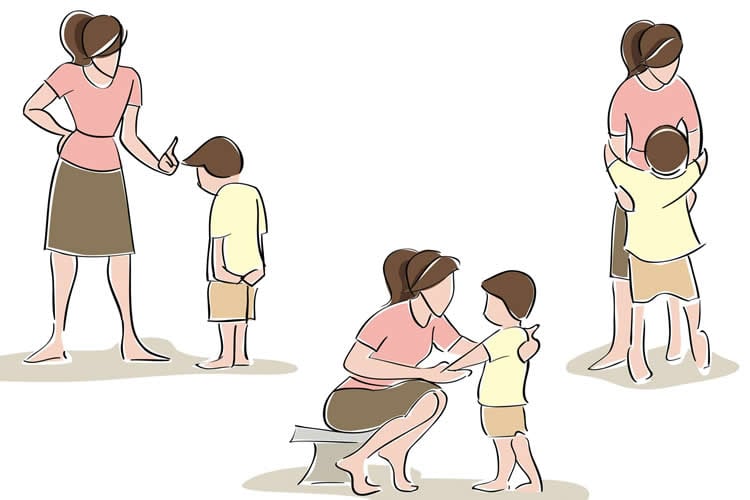Most adults know that a quick apology for a minor transgression, such as bumping into someone, helps maintain social harmony. The bumped-into person feels better, and so does the person who did the bumping. It’s all part of the social norm.
But do apologies have this effect on children?
A new University of Virginia psychology study, published this week in the journal Social Development, shows that apologies are important even to children who are 6 or 7 years old, an age when they are undergoing dramatic and important changes in cognitive development – when they are moving from their preschool years to middle childhood and are building social skill foundations that will last a lifetime.
“What was surprising was that children who experienced a minor transgression and heard an apology felt just as bad as those who did not hear an apology,” said Marissa Drell, a Ph.D. candidate in psychology at UVA and the study’s lead author. “But those who heard the transgressor say, ‘I’m sorry’ actually shared more with that person later. The apology repaired the relationship even though it did not mitigate their hurt feelings.”
Drell set up a situation where children were the victims of a minor accident. The children and an adult research assistant were asked to build towers out of plastic cups. As the child neared completion of his or her tower, the adult asked to borrow a cup from the child, and in so doing toppled the child’s tower. She either apologized or said nothing, and then left the room.
Later, when children were asked how they felt, those who received an apology reported feeling just as bad as those who did not. But when deciding how many stickers to give to the research assistant, those who heard an apology were more generous.
“Even though an apology didn’t make children feel better, it did help to facilitate forgiveness,” Drell said. “They seem to have recognized it as a signal that the transgressor felt bad about what she had done and may have been implicitly promising not to do it again.”

There was one form of amends that resulted in an even better outcome: Children who had their towers knocked over and then received the transgressor’s help in partially rebuilding it both felt better and shared more with her.
“Restitution – some sort of active effort to make repairs after a transgression – can make the victim feel better because it may undo some of the harm, and it can repair the relationship by showing the transgressor’s commitment to it,” Drell said.
Source: Fariss Samarrai – University of Virginia
Image Source: The image is adapted from the University of Virginia press release
Original Research: Abstract for “Making Amends: Children’s Expectations about and Responses to Apologies” by Marissa B. Drell and Vikram K. Jaswal in Social Development. Published online October 2015 doi:10.1111/sode.12168
Abstract
Making Amends: Children’s Expectations about and Responses to Apologies
Two studies investigate children’s expectations and actual responses to a transgressor’s attempt to make amends. In Study 1, six- and seven-year-olds (N = 16) participated in a building activity and then imagined how they would respond if a transgressor knocked over their tower and then apologized spontaneously, apologized after prompting, offered restitution, or did nothing. Children forecasted that they would feel better and would share more when a transgressor offered restitution or apologized spontaneously than when the transgressor had to be prompted to apologize or did not apologize at all. In Study 2, six- and seven-year-olds (N = 64) participated in the same building activity, but then actually had their towers knocked over and received one of the four responses. The only response that actually made children feel better was when the transgressor offered restitution. However, children shared more with a transgressor who offered restitution, a spontaneous apology, or a prompted apology than with one who failed to offer any apology. Restitution can both mitigate hurt feelings and repair relationships in children; apologies serve mainly to repair relationships.
“Making Amends: Children’s Expectations about and Responses to Apologies” by Marissa B. Drell and Vikram K. Jaswal in Social Development. Published online October 2015 doi:10.1111/sode.12168







